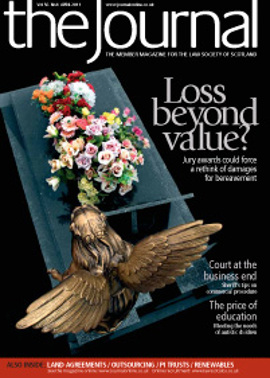Protecting the prescribed part

When the Government abolished Crown preference in the Enterprise Act 2002, this did not make a great deal of difference to the outcome of personal insolvencies, but in corporate insolvencies where preferential creditors rank behind fixed security holders but ahead of floating chargeholders, the Government did not wish the abolition of Crown preference to increase the return to floating charge creditors.
It therefore required a share of the realisations (“the prescribed part”) to be ringfenced for unsecured creditors: Insolvency Act 1986, s 176A. Section 176A(2) requires the liquidator, administrator or receiver to make a prescribed part of the company’s net property available for the satisfaction of unsecured debts, and prohibits distribution of that part to the holder of a floating charge except in so far as it exceeds the amount required for the satisfaction of unsecured debts. Regulations currently prescribe that, subject to the net property of the company being not less than £10,000, the prescribed part is to be 50% of the first £10,000 and 20% of the excess, subject to a maximum of £600,000.
Section 176A(2) does not apply if the company’s net property is less than £10,000 and the insolvency practitioner thinks that the cost of making a distribution would be disproportionate to the benefits. Section 176A(2) can be disapplied even if the net property exceeds the minimum, where the insolvency practitioner believes the cost of making a distribution would be disproportionate to the benefit and the court orders disapplication.
Proportionality rule
The joint administrators of QMD Hotels Ltd applied by note to the Court of Session for an order to disapply the section. The outcome statement estimated that the prescribed part was £5,699, to be divided among unsecured creditors with claims of £278,985. The administrators estimated their reasonable costs of adjudicating on unsecured claims and making the distribution at in the region of £5,000, leaving only £699 available for distribution. (The costs of distribution are met from the prescribed part.) They submitted, therefore, that the dividend did not justify the expense of adjudicating upon and dealing with the claims. If the court agreed, the floating chargeholder would benefit by £5,699.
These issues have arisen before in England, where the courts have held that they should not be too ready to disapply s 176A(2) simply because the dividend would be small.
However, Lord Glennie, considering the note ([2010] CSOH 168; 9 December 2010), decided there was a need for proportionality. If the costs of adjudication and distribution would be £5,000, they would be disproportionate to the benefits. However, he thought that before disapplying subs (2), the court should ask whether costs on that scale were reasonably necessary for the purpose. Parliament intended to ensure that there was something for unsecured creditors. Although insolvency practitioners have a statutory duty to adjudicate on claims, this had to be carried out in a proportionate way. Each case would turn on its own facts. A rough and ready adjudication might be required. There might be questions as to the validity of large claims which in fairness to other unsecured creditors required more detailed attention. However, that had to be weighed against the potential prejudice to those with good claims if the investigations took up too much time and expense.
Something better than nothing
Lord Glennie held that expenditure of £5,000 in this case would be disproportionate: the only persons who might benefit from the exercise were (1) the floating chargeholder if the court granted the motion to disapply s 176A(2); or (2) the joint administrators if the court refused to disapply the section and insisted on adjudication. In either case the parties who would suffer would be those whom Parliament intended to benefit (the body of unsecured creditors). There was a risk that a less thorough adjudication could result in some claimants receiving a small dividend to which they were not entitled, against which all unsecured creditors would at least receive something. On the alternative approach, most would get nothing even if their claims were good. In Lord Glennie’s words, “That makes no sense”.
The joint administrators were ordered to make payments to the unsecured creditors having done no more than was necessary to effect payment of the dividend without carrying out further investigations into the merits of their claims.
This seems a commonsense approach to a difficult matter, but will not solve the problem in other cases. As Lord Glennie recognised, each case will turn on its own facts. Insolvency practitioners remain under a statutory duty to adjudicate upon claims before making payment and the QMD Hotels decision will not provide authority for insolvency practitioners to pay out on claims without an adjudication. They will have to put a similar note to the court and have a similar direction before they can safely proceed as outlined in QMD Hotels.
In this issue
- Civil legal aid in the supreme courts
- Ever-eventful year
- Coming out - on top
- In the awards
- The price of grief
- Commercially driven
- Autism and the good society
- Guardians of the PIT
- Arbitration outreach
- The cloud? It's down to earth...
- Searching for a constitution
- Complaints update: disclosing information
- Dean waives cab rank rule in civil legal aid cases
- Law reform update
- The learning curve
- Legal services outsourcing: don't miss the boat
- Ask Ash
- The right steer
- No second chance
- Burning a hole in the law
- Protecting the prescribed part
- Final brick in place
- Scottish Solicitors' Discipline Tribunal
- Website review
- Book reviews
- Stretching the public purse
- Land and the open market
- Easing the burdens?
- It's an ill wind...






